Share
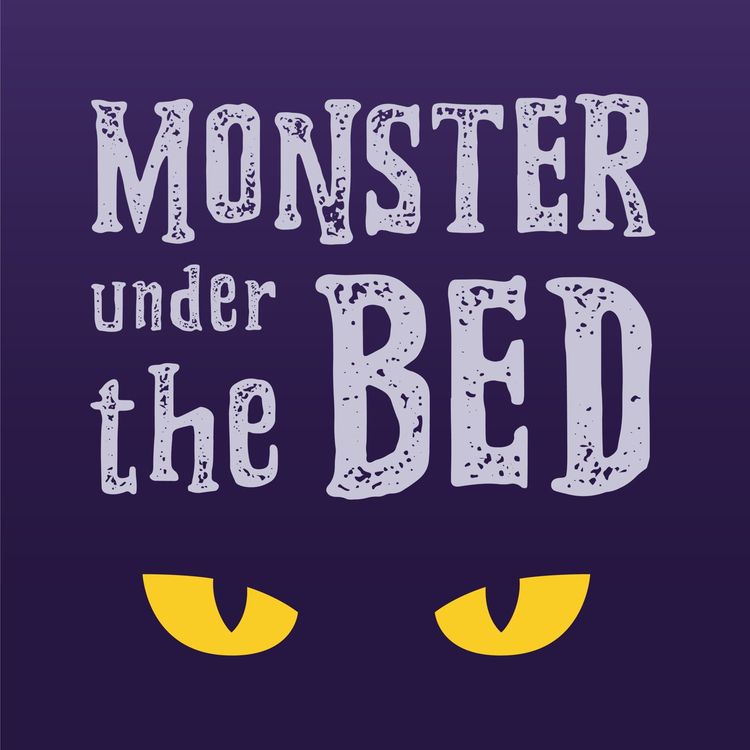
A Dictionary of Finance
Is the EU a waste of money?
In this episode of Monster Under the Bed, we bust the idea that the EU is something to scare people with, and the myth that it costs us too much
In the last few years, the EU budget has become a major topic of public discourse – whether in the media, or in our neighbourhood cafes. Something that once felt so remote has gone mainstream.
A lot of that is due to Brexit, and a lot of the conversations have had to do with specifically how much the European Union costs us, and our countries. So we decided to figure out whether there’s any truth in the often-heard exclamations that the EU costs us too much.
In this episode you’ll find out (without a lot of math or statistics):
· What is the EU budget? How is it decided, collected and spent? How big is it?
· How much does each European contribute to the EU budget?
· Why do some countries pay more into the EU budget than others do?
· What is cohesion?
· Why do people believe some of the myths about the EU floating around, and how can we use a moment of crisis and turn it into an opportunity?
At the European Investment Bank, the EU bank, we have all kinds of experts, who can challenge our assumptions, notions and prejudices about anything from climate to cybercrime and from healthcare to urbanisation. In this episode you will hear our Vice-President Alexander Stubb, as well as Mariusz Krukowski, the European Investment Bank’s senior policy adviser who works on EU budget issues and Brexit, among other things.
So that you don’t miss any episodes, subscribe to Monster Under the Bed on your phone’s podcast app. You can do it in iTunes, Acast and many other podcast platforms as well. In each episode of the podcast, we fight one imaginary monster under the bed and win the battle for a more sensible way of doing things.
Let us know if you can think of a monster we should expose on future episodes. Get in touch on Twitter @AllarTankler.
This episode contains audio content provided by the Audiovisual service of the European Commission (©European Union, 2013).
More episodes
View all episodes
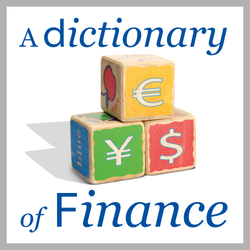
Inside the EU’s massive stimulus package
24:10|What do you do when an economy is struggling? If you’re a policymaker, a politician, or a central banker, you develop a stimulus package. That’s the term we examine in today’s episode. It’s the inside story of one of the biggest stimulus packages in history, to find out how it was set up, how it worked and what kind of results it got. The inside story of the European Fund for Strategic Investments.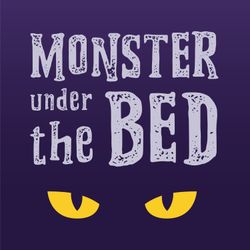
7. The digital pixie dust clean-up
22:51||Season 2, Ep. 7When we speak of the virtual world and storing things in ‘the cloud’, we seldom stop to realize that our digital climate impact is not virtual at all Many people see digitalisation as this magical pixie dust that Tinker Bell sprinkles on old industries to make them all environmentally friendly. Stop printing newspapers and get your news online and suddenly your environmental footprint is down to zero, right?Wrong.In this episode of the Monster Under the Bed podcast we learn:· What is the climate impact of the digital sector?· What is Jevon’s paradox?· What is the digital sector doing to clean up its act?· That even when digital services use renewable energy, it might be using up renewable energy that otherwise might be used by more critical sources. So we should hold off on all those cat videos· How can you personally curtail the CO2 emissions of our own use of technology?My guests on this episode are the European Investment Bank’s head of division for digital infrastructure Harald Gruber and risk manager Shirley Rizk. They are but two of the many experts at the EU bank who are helping me challenge various rumours, myths, and misconceptions that we are trying to overturn on this series of podcasts.Each episode features one ‘monster under the bed’ something that we are scared of, or mistakenly believe to be true. Check out our episodes on urbanisation, healthcare, education and much more.Look up Monster Under the Bed on your phone’s podcast app, and click ‘Subscribe’ or ‘Follow’. This way you can sleep soundly without worrying about missing any episodes – and during the night Tinker Bell will sprinkle a new episodes into your phone for you!Also, please rate and review us, and give us feedback – I’m @AllarTankler on Twitter.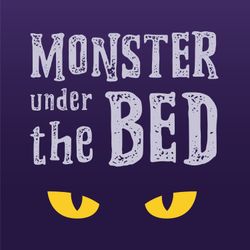
6. Do you need arms and legs?
18:38||Season 2, Ep. 6In schools and in the workplace disability training makes for better inclusion—and lets everyone draw on the strengths of people who overcame difficulties most of us never facedIs disability a state of mind? According to Bebe Vio, the young Italian Paralympic champion, you don’t need arms and legs to reach your goals. However, disability and diversity can come in many different forms—they can even be invisible. How can you help create an inclusive society?In this episode of the Monster Under the Bed podcast you’ll find out:· What is social diversity, diversity in the workplace, and diversity benefits· Why inclusion should start at school· How culture and education can build equality· Where jobs and disability come togetherAt the European Investment Bank, the EU bank, we care about diversity and inclusion. In this episode, we meet kids, men and women, with and without disabilities. All together they challenge our assumptions and prejudices.In each episode of the Monster Under the Bed podcast, we fight one myth in society and win the battle for a more sensible way of doing things.So that you don’t miss any episodes, subscribe to Monster Under the Bed on your phone’s podcast app. You can do it in iTunes, Acast and many other podcast platforms as well.Let us know if you can think of a monster we should expose on future episodes. Get in touch on Twitter @AllarTankler. If you’ve got something to say about diversity and inclusion in particular, contact me @Anto4EIB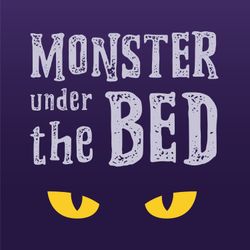
4. Forget careers. What are your competencies?
20:18||Season 2, Ep. 4In this episode of Monster Under the Bed, we bust the ‘you are what you know’ education myth and discover that, in fact, you are the things you know how to doIn the grim Victorian building where I went to school, we learned everything by rote. It worked out okay for me. But the focus at the school my kids attend doesn’t seem to be on cramming knowledge into their heads, and sometimes I wonder if that’s bad for them.So I decided to examine the ideas I had about schooling. Maybe the things I thought made for good learning were actually education myths that no longer apply in the digital age. With the help of the education experts at the European Investment Bank, the EU bank, I decided to find out.In this episode you’ll find out:· What are competencies? Competencies are the things you know how to do, rather than the things you know (like public speaking or putting together a presentation)· That kids are now focused on learning vs memorization, or to put it another way understanding vs memorizing. You could say it means learning life skills vs facts.· that when you have to change career (and even sometimes when you don’t) you need upskilling. What is upskilling? Upskilling is often retraining to bring you skills and competencies in line with what employers need in a marketplace that’s increasingly digital· that schools are preparing kids for the changes digitalisation is making to old ideas about careers· how an EU programme makes education fairer and more socially inclusive.At the European Investment Bank Group, the EU bank, we have all kinds of experts, just like the education specialists in this episode. They can challenge our assumptions, notions and prejudices about anything from climate to cybercrime and from healthcare to urbanisation.We started the Monster Under the Bed podcast to examine these myths. In each episode of the podcast, we fight one imaginary monster under the bed and win the battle for a more sensible way of doing things.So that you don’t miss any episodes, subscribe to Monster Under the Bed on your phone’s podcast app. You can do it in iTunes, Acast and many other podcast platforms as well.Let us know if you can think of a monster we should expose on future episodes. Get in touch on Twitter @AllarTankler. If you’ve got something to say about education in particular, let me know @EIBMatt.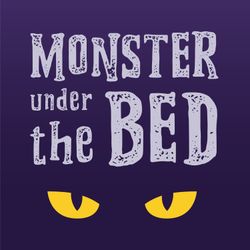
3. A shadow industry of fraud
20:09||Season 2, Ep. 3Here’s why you should be even more scared of cybercrime and the rising cost of cybercrime preventionYou probably think that if you have the latest software on your computer and a strong IT department at work, you’re more or less safe from cyberattacks. Boy, are you wrong.This myth is costing businesses a lot of money and causing people a lot of harm in lost data and privacy. You definitely should not rely only on software updates or the IT department to protect you from hackers. This episode of the Monster Under the Bed podcast lays out exactly what you need to do to stay as safe as possible.In this episode you’ll find out:· Why each one of us must take responsibility for cybersecurity· Why an IT department can’t prevent hacking all the time· Why cybercrime is getting worse and what are the projected losses. (One of our experts calls it “a shadow industry that is really spending time trying to defraud people.”)· How adults and children can arm themselves for cyberattacks· What a 10-year-old does when his computer is hackedAt the European Investment Bank, the EU bank, we have all kinds of experts, including the cybercrime specialists in this episode. They challenge our assumptions, notions and prejudices about anything from climate to cybercrime and from healthcare to urbanisation.The Monster Under the Bed podcast examines these myths. In each episode, we fight one imaginary monster under the bed and win the battle for a more sensible way of doing things.So that you don’t miss any episodes, subscribe to Monster Under the Bed on your phone’s podcast app. You can do it in iTunes, Acast and many other podcast platforms as well.Let us know if you can think of a monster we should expose on future episodes. Get in touch on Twitter @AllarTankler. If you’ve got something to say about cybercrime in particular, let me know @EIBChris.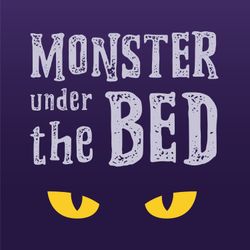
2. The countryside is for the birds
27:57||Season 2, Ep. 2Forget the dystopian images of overcrowded, polluting cities. When urban life is well-planned and well-managed it’s better for the environment than country living.We all know the dystopian image of city life—smog, roads jammed with traffic, high prices and noise. Listen to this installment of our myth-busting show to find out:· Where did cities come from? What were the instincts that first drove us to live close together? And are these reasons still valid today?· Where did cities mess up? (Where did the dystopian image of cities as places with a low quality of life come from?)· What is mixed planning and is it an entirely good thing? (No mixed reviews at all!)· How country living is expensive for society and creates social isolation.· Why urban sprawl is the real monster we should fear—not life in well-planned, well-managed, compact towns.· And how deserting the countryside can actually be a boon for nature.At the European Investment Bank, we have all kinds of experts who can challenge the assumptions, notions and prejudices we all have about anything from climate to cybercrime, and from healthcare to education.On this episode, our guests are Brendan McDonagh from the European Investment Advisory Hub, a partnership between the EIB and the European Commission, EIB’s senior urban development specialist Grzegorz Gajda, and Stefanie Lindenberg, coordinator for the Natural Capital Finance Facility at the EIB – and some random people we approached in Luxembourg to find out how they feel about living in the city, or whether they’d rather be anywhere else.All throughout the episodes we’ll be tackling those myths and fears to identify people and projects that are taking a more rational approach—which is good for our economy and our society.Talking of rational, it makes sense to subscribe to Monster Under the Bed on your phone’s podcast app. This way you won’t miss any episodes. We’re also very grateful if you rate and review us – that helps others find the podcast. And you can suggest myths to bust and monsters to slay by tagging me on Twitter – I’m @AllarTankler.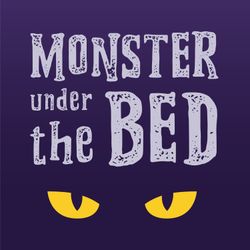
1. Should your hospital die?
24:54||Season 2, Ep. 1‘Monster Under the Bed’ is a new season of podcasts by the European Investment Bank that tackles myths and prejudices we all have about anything from health care to cybercrime, and from urban planning to education.In this episode we talk about how advances in medicine and squeezed budgets are forcing countries to rethink health care.For most of us, hospitals conjure up some very specific images: nurses and doctors running around, fancy machinery beeping away, somebody yelling “STAT!” While hospitals are chaotic places, they are also strangely reassuring. No matter how you are injured or what strange illness you’ve contracted, going to the nearby hospital can make you better. But maybe you don’t need a hospital after all. Did you know:- Hospitals are an extremely expensive way to treat people- Technology has made many surgeries less invasive, so that we don’t need to spend as much time in a hospital bed- Patients in hospitals are often overtreated or required to stay longer than necessary- Germany has a higher number of hospital beds than Spain, but the Spanish system is one of the world’s best- People with chronic health issues are best treated outside of a hospital setting- 20% of all health spending is wasted on ineffective careOur guests are Tunde Szabo and Dana Burduja from the European Investment Bank’s Life Sciences division. They talk about how many countries actually need to close hospitals, or at least slim them down, to free up resources for other, more effective forms of care.Subscribe and rate us! This way you won’t miss any episodes. And give us feedback via @AllarTankler or Twitter.